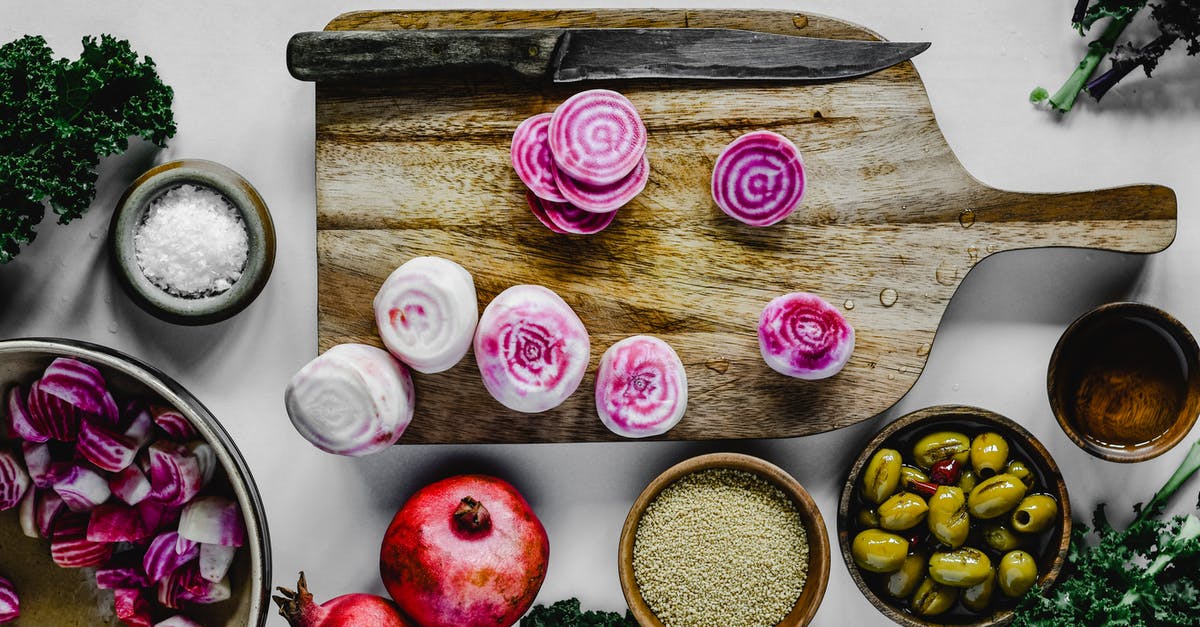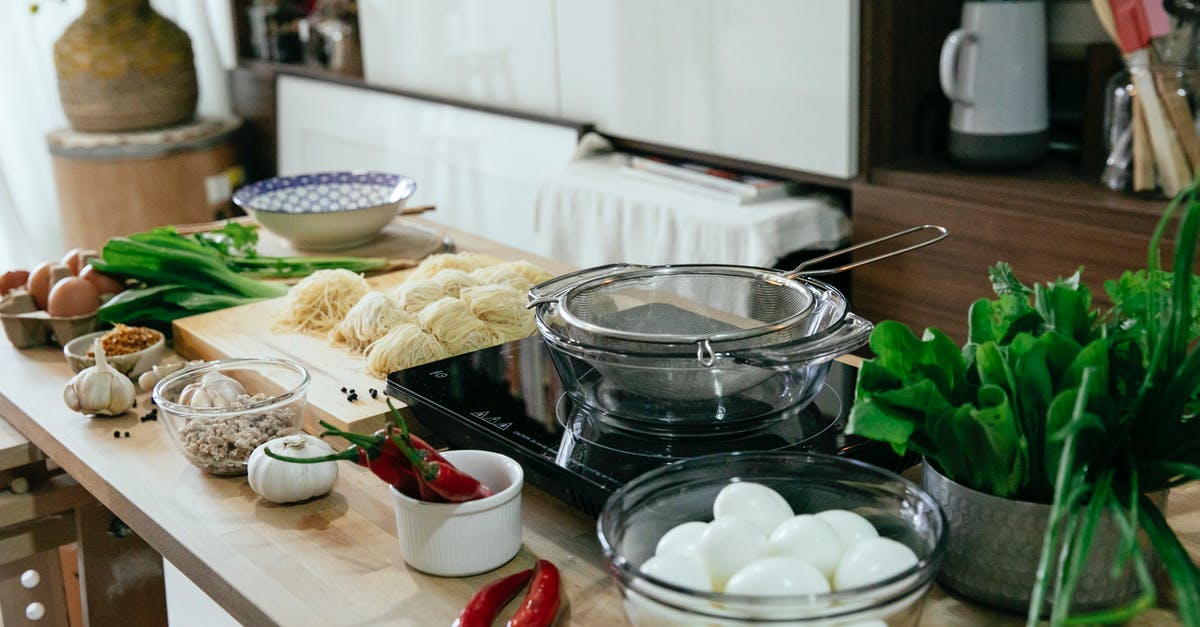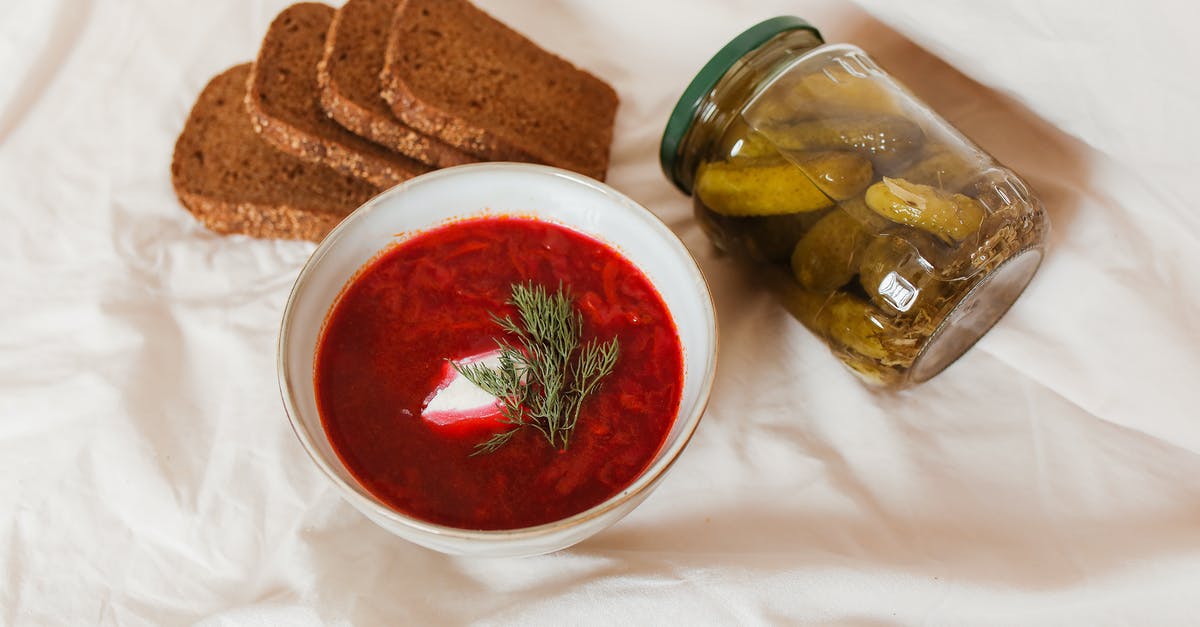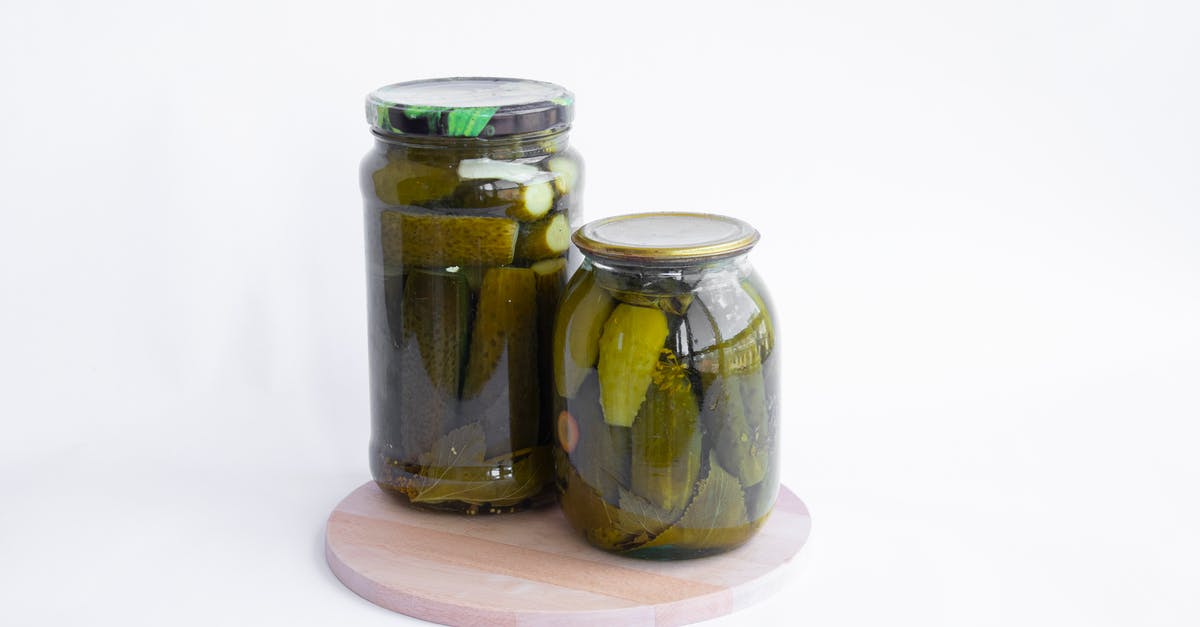preservation of uncooked dill pickles

I have used an old German dill pickle receipe forever that doesn't use a water bath. I make brine and boil, pour over prepared jars, put on heated lids and leave them to seal on their own. These are yummy and SO crisp (because of no water bath). I have 2 that didn't seal this time. I did the usual 'push down' on the lids after they set overnight, and one of them stayed down and the other came up after several hours. Are they OK? If not, can they be kept in the refidge? How long are they good for?
Best Answer
In general, you shouldn't trust anything with a poor seal to last outside the fridge. In the fridge, they'll last just as long as a well-sealed jar that you've just opened. Commercially processed pickles can last a year in the fridge. I wouldn't expect homemade ones to last as long but they should still be good for long enough to eat them all, at least months!
The solution in the future is simply to switch to a different canning method, for example this lower temperature one or a boiling water bath one. Here's an example recipe - you could certainly adjust the spices to match the recipe you like, but it's of course safest to stick to that trusted recipe for the bulk ingredients.
Your problem is that this canning method doesn't reliably produce good seals. The similar inversion method, mentioned by Martin in the comments (turning the jar over after filling and closing) does work better, but even that doesn't always make a good seal! See for example this USDA source, which says:
Some other methods of sealing jars call for inverting a closed, filled jar of hot product for anywhere from thirty seconds to one hour. (Inverting is turning the filled jar upside down on its lid.) While this inversion process can be successful in producing a sealed jar, it works best with very hot product. Individual variation in practicing this procedure or unexpected interruptions can result in delays between filling jars, getting lids screwed on, and inverting the jars. If the product cools down too much, the temperature of the product can become low enough to no longer be effective in sealing jars or preventing spoilage.
When the inversion process does work, the vacuum seals of filled jars still tend to be weaker than those produced by a short boiling water canning process. A larger amount of retained oxygen in the headspace may allow some mold growth if airborne molds contaminated the surface of the product as the jar was filled and closed. More complete removal of oxygen from the headspace also offers some longer protection from undesirable color and flavor changes with some types of fruit products. A weak seal may be more likely to fail during storage.
Pictures about "preservation of uncooked dill pickles"



Quick Answer about "preservation of uncooked dill pickles"
Wash, dry, label, and store sealed jars in a clean, cool, dark place. If lid is unsealed, examine and replace jar if defective, use new lid, and reprocess as before. Wash screw bands and store separately. Pickles are best if used within a year and are safe as long as the lids remain vacuum sealed.How can we preserve pickles for a longer time?
Pack tightly into a jar small enough that the pickling liquid (125ml fresh cider vinegar to 1 tbsp boiled and cooled water) covers the veg. Seal and store them in a cool dark place for at least a month and keep in the fridge once opened.How do you preserve food pickles?
Science of Pickles: Canning | Exploratorium. Pickles should not be kept on your pantry shelf unless they are canned. This involves heating jars of pickles to temperatures high enough to kill off spoilage microbes\u2014a method known as heat processing. An airtight vacuum seal forms when the jars cool, shutting microbes out.Do homemade pickles need to be sealed?
Fully fermented pickles may be stored in the original container for about 4 to 6 months, provided they are refrigerated and surface scum and molds are removed regularly. Canning fully fermented pickles is a better way to store them. To can them, pour the brine into a pan, heat slowly to a boil, and simmer 5 minutes.How I Preserve Dill Pickles Easily - NO Water Bath
More answers regarding preservation of uncooked dill pickles
Answer 2
I use a similar recipe from Cooks Illustrated for Bread and Butter Pickles. We have left them in the fridge for a very long time and have eaten them over a timeline of a year. Opening and closing the jars.
- Smell the pickles
- Look to see if they are breaking down unusually fast
- Look to see if there are any floating clumps of bacteria in the pickle brine
- Look to see if there are molds growing around the rim or in the lid
Note: I do not know what is in your brine, but mine had enough vinegar in it to keep out bacteria.
Sources: Stack Exchange - This article follows the attribution requirements of Stack Exchange and is licensed under CC BY-SA 3.0.
Images: Eva Bronzini, Katerina Holmes, Polina Tankilevitch, Леся Терехова
